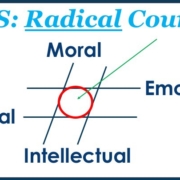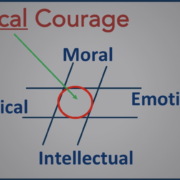Take These Simple Steps to Improve Accountability
I use a pre-event survey before delivering a keynote or off-site, and “strengthening accountability” is always at the top of issues on leaders’ minds.
Leaders recognize the value of accountability, which means being answerable for meeting standards. Employees willing to acknowledge and own their mistakes or shortcomings are most likely to learn from them and improve continuously. By contrast, those unwilling to do so are likely to repeat errors and fail to grow.
High-ownership employees believe they have a responsibility to meet standards, and they possess the psychological confidence to own their mistakes and shortcomings. High-ownership employees will flag problems before they become crises and offer fresh ideas that help you innovate.
Low-ownership employees, by contrast, lack belief in your standards and have poor psychological confidence. They are reluctant to admit mistakes or shortcomings because they believe you’ll throw them under the bus. They won’t identify problems or try new things because they fear failing. You’ll have difficulty helping low-ownership employees grow because they do not accept your standards. Identifying these employees and moving them on (or flagging them before you hire them) will boost morale and productivity.
Moderate ownership employees accept your standards but are reluctant to admit mistakes or shortcomings because they have low psychological confidence. They are likely to report only problems that can be blamed on others and won’t try new things.
Most employees have moderate ownership, and your approach to accountability will determine whether they grow into high-ownership employees or remain the same.
When you view accountability as fault-finding and blame, you reinforce an employee’s reluctance to admit mistakes and shortcomings. When you drill into people about their errors, their first instinct is to defend themselves, rationalize, and shift blame. You are more likely to build resentment than create psychological confidence and better future performance.
Here’s a better way. Ask your employee the following questions:
- What went well?
- In what ways did you improve from last time?
- What would you like to do better next time? How?
- What does ideal support from me look like?
Your high-ownership employees will identify their critical mistakes and shortcomings and develop steps to improve. Your moderate ownership employees will identify some mistakes and shortcomings. For the ones they missed, you can ask, “tell me more about X.” You want to boost their psychological confidence so they improve continuously and take the initiative to report problems, offer fresh ideas, and try new things.
Your low-ownership employees won’t recognize mistakes and shortcomings or only identify minor ones.
In rare cases, you may have a psychologically confident employee with low buy-in for your standards. In this case, you need to discuss how the company and the employee are better off with the standards than without and find out why they are hesitant to accept them. You might find that they have a good point, and you can make commonsense adjustments.
I’d like to hear how well this approach works for you.
P.S. To help you assess the degree of psychological confidence in your organization, Dr. Mark Goulston and I developed a survey that produces your Net Psychological Confidence Score.
You can take it here as an individual to gauge your psychological confidence level. We can also create a version customized for your organization.
When you use the survey for your organization, you’ll gain:
- Your organization’s Net Psychological Confidence score, which you can use as a baseline for gauging progress.
- Knowledge of what factors are playing the most significant role in your score.
- Follow-up videos and action steps you can use immediately to strengthen your organization’s psychological confidence.
- Greater trust, more innovation, lower turnover, and less stress as you implement these steps.
Check out the survey here, and email Chris or schedule a call if you’d like to see if your Net Psychological Confidence Score is a good fit for your organization.










